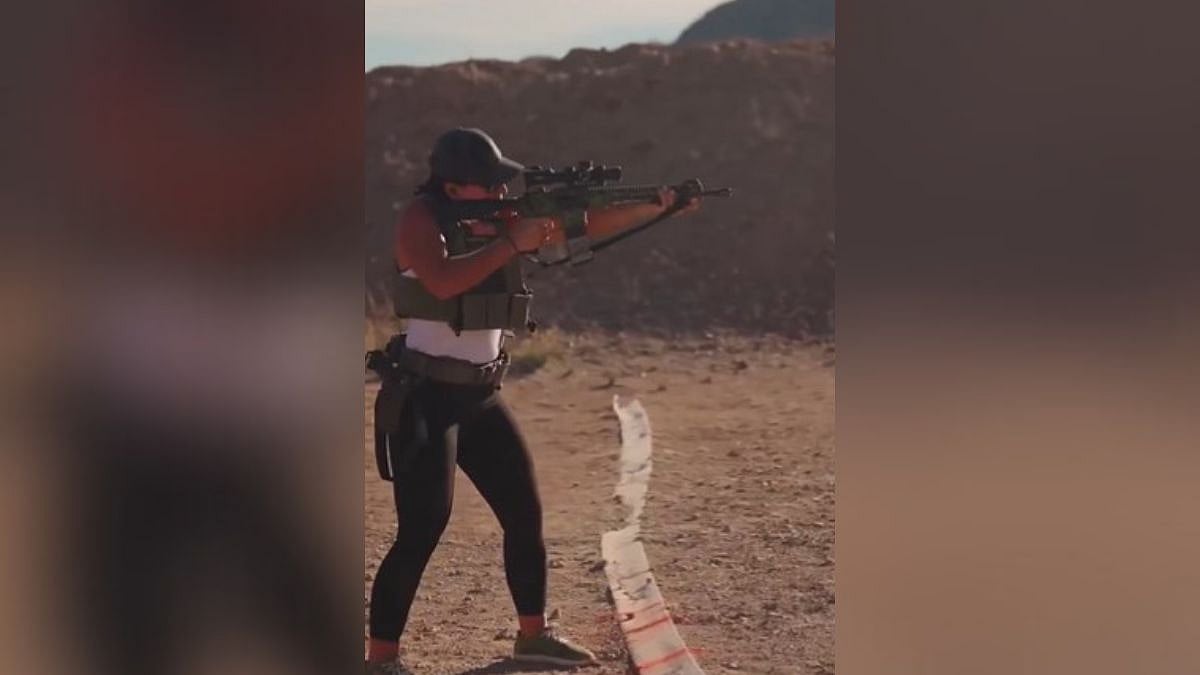Dutch police said units from around the country were brought in to "restore order" to Rotterdam. "Dozens of arrests have now been made, it is expected that more arrests will follow. Around seven people have been injured, including on the side of the police," a police statement said. Dutch police fired warning shots, injuring several people after rioters against a partial Covid lockdown torched a police car and hurled stones in Rotterdam on Friday.
Chaos broke out after a protest in the port city against the coronavirus restrictions and government plans to restrict access for unvaccinated people to some venues.
Dozens of people were arrested and seven people were injured in total, including police officers, during the nighttime rampage on one of Rotterdam's main shopping streets.
The Netherlands went back into Western Europe's first partial lockdown of the winter last Saturday with at least three weeks of curbs on restaurants, shops and sports.
Rotterdam mayor Ahmed Aboutaleb described the riots as an "orgy of violence".
"The police have felt the need to draw a police weapon in the end to defend themselves," he told reporters.
Police said in a statement that the demonstration that started on the Coolsingel street has resulted in riots. Fires have been set in several places. Fireworks were set off and police fired several warning shots.
"There are injuries related to the fired shots," they added. They did not give a number but public broadcaster NOS said two people were hurt.
Dutch media said several hundred protesters shouted slogans including "freedom", then threw stones at police and firefighters and set fire to several electric scooters.
The situation had largely calmed later but the smoking wreckage of a burned-out police car and dozens of smashed bicycles littered the scene, an AFP reporter said.
Riot police carrying shields and batons were directing groups of people away from the area. Officers on horseback and in police vans patrolled the streets.
Police also cordoned off several scenes to comb for evidence, with a human finger visible on the ground at one of them, the AFP correspondent said.
"Most of the demonstrators are now gone. There only remain a few groups in a few places," police spokesman Jesse Brobbel told AFP.
Dutch police said units from around the country were brought in to "restore order" to Rotterdam."Dozens of arrests have now been made, it is expected that more arrests will follow. Around seven people have been injured, including on the side of the police," a police statement said.
Rotterdam authorities issued an emergency order banning people from gathering in the area "to maintain public order", while its main railway station was closed.
"This is a very serious situation which requires action with the highest priority," said the emergency order by the Rotterdam municipality.
Tensions will now be high ahead of planned demonstrations in Amsterdam and the southern city of Breda on Saturday. Local media say thousands of people are expected to attend.
Like much of the rest of Europe, the Netherlands has seen Covid cases soar to record levels in recent days, with more than 21,000 new infections reported on Friday.
The latest restrictions were announced on November 12, and sparked clashes between demonstrators and police outside the justice ministry in The Hague.
In January the Netherlands suffered its worst riots in four decades, including in Rotterdam, after a night-time Covid curfew came into force. But the most controversial measure could be yet to come. The Dutch government is considering excluding the unvaccinated from bars and restaurants -- the so-called 2G option -- limiting admittance to people who have been vaccinated or who have recovered from the disease.
However there was significant opposition to the plan during a debate in parliament this week.Similar measures have already been taken in neighbouring Germany, while Austria initially did so but has now gone into full lockdown.
Earlier Friday the Dutch government outlawed traditional fireworks over New Year for a second year in a row "to prevent an extra burden on care workers," the government said.











